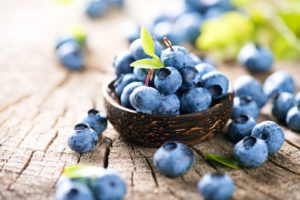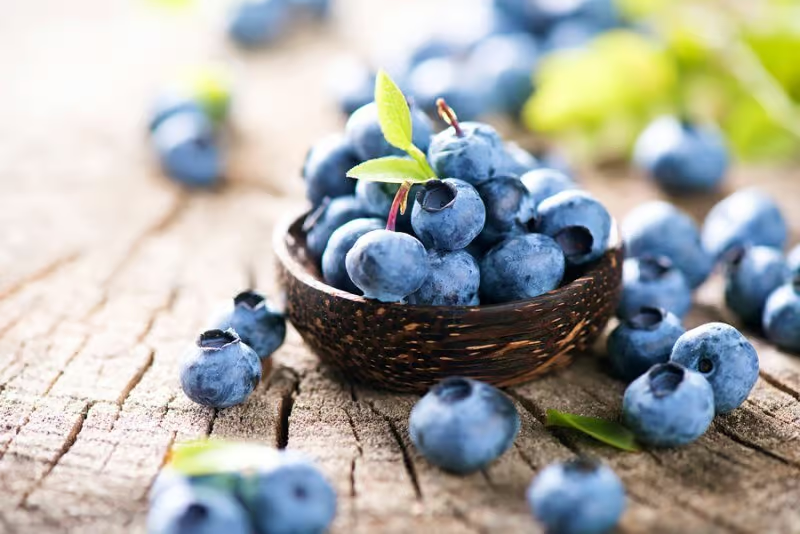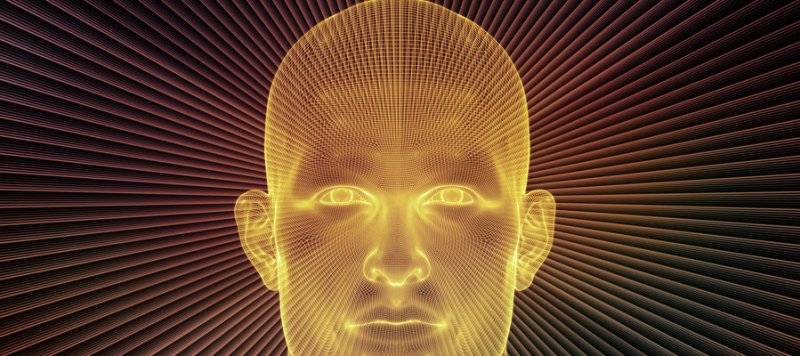Table of Contents
Research over the last several years has shown that our brain has the remarkable ability to re-wire itself throughout life.
Every time we have a new thought, encode a new memory or learn a new skill, we are building a new neural network in our brain.
And these tiny neural networks are dependent on an ample supply of BDNF.
Brain-Derived Neurotrophic Factor (BDNF) is a naturally occurring protein that is responsible for the growth of new brain cells, maintenance and survival of neurons.
BDNF prevents apoptosis (brain cell death), induces the growth of new neurons (neurogenesis) and synapses (synaptogenesis), and supports cognitive function.
Higher levels of BDNF can increase cognition, mood, productivity and memory. And decrease the risk of neurodegenerative diseases like Alzheimer’s and Parkinson’s Disease.
In this post we investigate why BDNF is so critical for optimal cognitive performance. And how you can increase BDNF naturally with a healthy diet and the right nootropic supplements.
How BDNF Supplements Work in Your Brain
BDNF is a protein that is encoded in humans by (oddly enough) the BDNF gene. BDNF is part of the neurotrophin family of growth factors which are related to Nerve Growth Factor (NGF).
BDNF regulates whether cells live or die, neurogenesis, axon growth, dendrite pruning, and the expression of proteins critical for normal brain function such as neurotransmitters and ion channels.
BDNF also controls the function of synapses and synaptic plasticity. All while continuing to modulate neuron survival.[i]
When BDNF is released, new connections form in your brain by attracting new dendrites from neurons to connect to other neurons or synapses.
This wiring together of new neural networks is how memory is formed and consolidated. A thought, memory or new skill you learn is the result of a new neural network.
When BDNF levels decline, you experience problems with memory and learning, and depression. When you decrease bdnf levels this is why nootropics like Bacopa Monnieri, L-Theanine, and Rhodiola Rosea exhibit antidepressant activity in your brain. They each have the ability to increase BDNF in your brain.
Here we’ll explore many of the nootropics available that can be easily added to our stack to increase BDNF at any age.
Nootropics to Boost BDNF
Ashwagandha
Ashwagandha is one of the most powerful adaptogens and has been used since ancient times to help the body adapt to stress. In the brain, Ashwagandha has been shown to help regenerate axons and dendrites, reconstruct synapses, and restore neural networks affected by neurodegenerative disease.
Ashwagandha performs some of this magic with better brain health by boosting levels of BDNF. And research shows that Ashwagandha can also prevent the decline of BDNF levels in the brain.[ii]
Bacopa Monnieri
Bacopa Monnieri helps increase levels of BDNF in your brain. Bacopa has been used to boost memory and as an antidepressant for millennia. The ancient Ayurvedic texts recommended Bacopa to devotees to help memorize long passages of text.
Studies show that Bacopa Monnieri improves word recall, increases attention, improves focus and reduces anxiety. A study conducted in India showed that Bacopa Monnieri extract promoted hippocampus neurogenesis by elevating BDNF levels in the brain. And as an antioxidant defense against oxidative stress.[iii]
DHA (Omega-3)
DHA (Omega-3) helps increase levels of BDNF in your brain. DHA makes up much of the gray matter in your brain. DHA regulates signaling in your brain, and gene expression. DHA influences neurotransmitters which affect memory, learning, focus and attention.
One study conducted at the University of California at Los Angeles showed that DHA could restore BDNF levels to normal, even after traumatic brain injury.[iv]
Ginseng
Ginseng as long been used to improve memory and learning. Most neurohackers using ginseng report feeling more alert. We know that stress can reduce BDNF levels in the brain. This is where ginseng comes in.
One study showed that ginseng extract affected memory and learning by boosting nerve growth factor (NGF) and neurite growth in the brain.[v] Another study showed that ginseng extract (GRb1) prevented a decline in BDNF levels in animal brains that were subjected to stress.[vi]
Gotu Kola
Gotu Kola is often called the “student herb” in Bali because it sharpens the mind. Gotu Kola extract increases dendrite and axon growth in the brain which helps boost memory.
This was demonstrated in a study conducted in China. The researchers found that Gotu Kola extract significantly increased BDNF concentrations in the brain.[vii]
L-Theanine
L-Theanine, which naturally occurs in green and oolong tea, is an amino acid. L-Theanine is used as a nootropic for anxiety, learning, mood, and focus.
A study in Tokyo investigated the mechanism of action L-Theanine exerts in the brain. And why it provides “antipsychotic-like” and “antidepressant-like” effects. The research team concluded that L-Theanine provides antianxiety and antidepressant effects “through induction of BDNF in the hippocampus and the agonistic action of L-Theanine on the NMDA receptor”.[viii]
Magnesium
Magnesium is critical to all of your body’s electrical and electrochemical activities. It’s involved in muscle contractions, heart rhythm, nerve function and brain cell activity.
Research shows that Magnesium L-Threonate easily crosses the blood-brain barrier (compared to other forms of magnesium). And once in your brain, magnesium increases NMDA receptor signaling, BDNF expression, and synaptic plasticity in the pre-frontal cortex. Increasing learning and memory while impairing fear memories.[ix]
N-Acetyl L-Cysteine (NAC)
N-Acetyl L-Cysteine (NAC) is a powerful anti-oxidant that can boost mood, lower anxiety, improve memory, and reduce compulsive behavior. There is a growing body of scientific literature exploring the use of NAC in the treatment of psychiatric illness.
Research has shown that NAC helps boost dopamine release. NAC reduces inflammatory cytokines. And NAC acts in the process of glutathione synthesis.
Scientists believe this convergence of mechanisms in the brain are due NAC’s ability to promote cell survival and growth factor synthesis, leading to increased neurite sprouting. Partly through activating the BDNF/TrkB signal pathway.[x]
Noopept
Noopept is an ampakine nootropic similar in action to the racetam-class of compounds. And is known for boosting cognition, memory, learning, perception, logical thinking and mood.
A study published by the Russian Academy of Medical Sciences in Moscow shows that Noopept stimulates Nerve Growth Factor (NGF) and Brain-Derived Neurotrophic Factor (BDNF).[xi]
Rhodiola Rosea
Rhodiola Rosea is an adaptogenic herb and nootropic that has been used in traditional medicine in Russia and Scandinavian countries for hundreds of years. This herb is known for improving alertness, energy, memory and mood, is anti-anxiety and anti-depressant, reduces fatigue, and boosts cognition and concentration to help keep your brain healthy.
Scientists found that Salidroside, the primary bioactive compound found in Rhodiola Rosea extract, significantly increases BDNF levels in the hippocampus.[xii]
Pterostilbene
Pterostilbene (PTE) is a naturally derived polyphenol antioxidant found in blueberries, grapes, and in the bark of the Indian Kino Tree. This potent antioxidant stimulates BDNF, promotes neuroplasticity (brain plasticity), is anti-anxiety, boosts dopamine, and helps cognition, learning and memory.
In several studies, Pterostilbene has been shown to modulate gene expression. PTE up-regulates those genes that stimulate apoptosis (programmed cell death). And down-regulates those genes that allow cancer cells for example, to invade and metastasize within your central nervous system.
And this gene modulation is linked to increases in CREB and Brain-Derived Neurotrophic Factor (BDNF). An increase in BDNF helps long-term potentiation needed for the development of long-term memory.[xiii]
Resveratrol
Resveratrol is a polyphenol stilbenoid and phytoalexin that certain plants produce in response to stress, such as injury or fungal infection. This potent antioxidant boosts BDNF, increases cerebral circulation, improves energy and memory, and potentially promotes longevity.
Researchers in Iran found that Resveratrol significantly boosted mRNA and BDNF in the hippocampus. And concluded “that the neuroprotective effects of Resveratrol may be at least partly due to its inducing effects on the expression levels of the BDNF mRNA”.[xiv]
Turmeric
Turmeric (Curcuma longa) has been shown to increase Brain-Derived Neurotrophic Factor (BDNF), fight depression, improve cognition, focus and libido, and protect the brain from inflammation.
Curcumin, the primary bioactive compound found in Turmeric, produces its neuroprotective effects in the brain by increasing BDNF. And mediating the BDNF/TrkB-MAPK/PI-3K-CREB signaling pathway in the brain.[xv]
In this post we’ve covered the nootropics we can use to boost BDNF levels in our brain. But the latest research shows several other natural ways to boost BDNF. And they include:
- Intermittent Fasting
- High-Intensity Resistance Training
- Sunlight or Vitamin D
- Restricting sugar intake
- Socializing
- Sleep
The Optimized Brain
Higher brain levels of BDNF helps support the survival of existing neurons, encourages the growth new neurons (neurogenesis) and new synapses (synaptogenesis), better memory, learning and cognition, and less depression.
BDNF is Miracle-Gro® for your brain and mental health. Use any one or more of the nootropic supplements detailed above to increase BDNF naturally for a highly optimized brain.
Or save some money and get effective amounts of Bacopa Monnieri extract, L-Theanine (as Suntheanine®), and Rhodiola Rosea 3:1 extract in Mind Lab Pro®.
You can get DHA in Performance Lab® Omega-3s (600 mg DHA & 300 mg EPA) which is an ultra-clean Omega-3 made with life’s™ OMEGA algae.
And get Magnesium in Performance Lab® Sleep which contains 100 mg Magnesium (as Magnesium Bisglycinate, Magnesium Taurate, NutriGenesis® Magnesium) combined with 500 mg CherryPURE® Montmorency Tart Cherry, 200 mg Lemon Balm Extract, and 200 mg L-Tryptophan.








Join The Discussion - 74 comments
Berta Roscher
December 2, 2022
Excelente
Jee
September 22, 2022
Isn’t Lion’s Mane considered very effective for BDNF?
David Tomen
September 22, 2022
It’s not. Lion’s Mane boosts Nerve Growth Factor but not BDNF.
Zha
October 7, 2022
One group learned more.
“Western blot analysis also showed the increased protein expression of NGF, brain-derived neurotrophic factor (BDNF) and synaptophysin (SYP) in C6-N2a cells.”
–“Neurotrophic isoindolinones from the fruiting bodies of Hericium erinaceus”, Se et al., 2020
David Tomen
October 9, 2022
I stand corrected. Good find Zha. Here is the link to that study: https://pubmed.ncbi.nlm.nih.gov/33246107/
amino a
July 5, 2022
Good evening David, to the best of your knowledge, what are the best supplements to repair the brain and help with the withdrawal of antidepressants
David Tomen
July 8, 2022
Amino, no easy answer to this one because depending on the antidepressant. For example, detoxing from a true SSRI, you need to avoid anything that affects serotonin receptors. Which are very likely desensitized.
Really the only thing you can do is increase BDNF and Nerve Growth Factor which boost neurogenesis and helps your brain repair itself. The other problems like alterations in gene expression and messed up ion channels cannot be addressed by using supplements.
Aria
July 4, 2022
No mention of coffee fruit extract? By far the most effective IMO
David Tomen
July 5, 2022
Aria, I discovered another 6 or 7 nootropic supplements that also boost BDNF since I published this article. Including caffeine which is why coffee fruit extract would increase BDNF.
Danie
December 31, 2022
If you dig for a very long time, you can find out that the bdnf hobby provokes almost all useful food for the brain))
I read somewhere else studies that more than 13 mg of lutein per day increases bdnf and generally helps the brain, research on the effect of lutein on the brain is enough. Will this page be updated? I really like your project, I would like it to constantly develop and be filled with accurate data))
David Tomen
January 13, 2023
Danie, the only research I’ve done on Lutein is how it is beneficial for your eyes: https://nootropicsexpert.com/performance-lab-vision-review/#performance-lab%c2%ae-vision-ingredients
I should update this page because since I published it I’ve since reviewed another 6 or 7 nootropic supplements that also boost BDNF.
amind
June 28, 2022
Good morning David, what are the supplements that help with withdrawal from citalopram, as far as you know, and thank you for the advance from the publication of brain research
David Tomen
July 1, 2022
You will not be able to completely avoid withdrawal symptoms from these supplements. But you should feel better while doing so.
Restore GABA by using PharmaGABA before bed. And during the day use 1,000 mg DHA (Omega-s), a BioActive B-Complex: https://geni.us/8Ig2A, Vitamin D3 5,000 IU, magnesium Bisglycinate 400 mg before bed, and choose either Valerian root extract, Ashwagandha extract or Rhodiola Rosea extract.
Thomas Crespin
February 16, 2023
Hello David,
When you say PharmaGABA can you tell me the brand name it appears that there are several brands that make a product called PharmaGABA?
I’ve been taking Theanine and NAC for Olanzapine withdrawal and they have really helped. It seems as though boosting GABA and reducing glutamate is critical to coming off of this medication, would you agree?
Thanks for all you do, you have helped more people than you know sir!!
David Tomen
February 17, 2023
Thomas you need glutamate because everything happening in your brain depends on it. But glutamate can be toxic as well.
You have a cycle called the glutamine/glutamate/GABA cycle. And when one of those is out of whack it messes with that cycle. See my review of Glutamine (https://nootropicsexpert.com/l-glutamine/) for an explanation on how this works.
PharmaGABA™ is a natural form of GABA made by Japanese company using Lactobacillus hilgardii bacteria. It is the same form of GABA naturally produced in your gut. Manufacturers license that ingredient to use in their GABA supplements. It easily crosses the blood-brain barrier. Much better than synthetic GABA which must be used at much higher doses.
I suggest looking for a “pure” PharmaGABA™ that contains no other toxic “other ingredients”. Avoid things like magnesium stearate and silicon dioxide. There should only be PharmaGABA™ in that capsule. Like this one: https://geni.us/Zz0QwY9 (Amazon)
Tom P
April 1, 2022
Hi David,
I have been reading lately that increasing BDNF can cause hairloss in some people, as it shortens the hair cycle, leading to hair shedding.
Are these people taking too much BDNF…i know one friend personally who developed a bald patch in the centre of his hairline from taking a lot of these and Lion’s Mane. It is not MPB, so i feel that hairloss could happen, but i suspect it will probably grow back, as long as the person doesn’t also have MPB on top of the BDNF hair shedding.
Do you have any opinion on this?
David Tomen
April 1, 2022
Tom, hair loss and BDNF is news to me. But nothing in excess is good. Too much BDNF will likely backfire on you one way or the other.
BTW, Lion’s Mane does not increase BDNF. It increases Nerve Growth Factor.
ilva
March 11, 2022
hi david, i saw you suggesting lion’s mane in the comments and also stressing the importance of dosages. do you happen to have a recommended dosage for that, more specifically for someone who is recovering from TBI? thank you so much for all the work you do
David Tomen
March 11, 2022
ilva, standard recommended dosage for Lion’s Mane extract is 500 – 1,000 mg twice per day. It is safe to use up to 3,000 mg per day. But make sure you get a Lion’s Mane extract made from the fruiting body and mycelium. Preferably grown in a liquid medium because otherwise it is difficult to extract erinacines from the grain that most mushrooms are grown in. Erinacines is the compound that boosts Nerve Growth Factor (NGF). And it is only found in the mycelium. Not the fruiting body like other nootropic mushrooms.
Veronica
January 10, 2022
Hi I need some help, my father had a stroke and had a small bleeding in the brain. His left side is not moving, it’s been 3 weeks. What would you recommend him to take? I’ve given the hospital lions mane extract which he’s been using for a few days now. Is there something else he can use to help him?
David Tomen
January 11, 2022
Veronica, some examples of supplements that have been shown to be helpful after a stroke include: Glycine, PQQ, Taurine, and Astaxanthin. But that is just a partial list.
I suggest you do the search of Nootropics Expert using the search function top right of the top menu and search for the keyword “stroke”. You’ll get several pages of search results so it will take some reading.
But I want you to keep this in mind. Some nootropics help post-stroke while others help prevent a stroke. This is important because it is well known there is a high probability that someone who has suffered a stroke will suffer another one and possible more after that.
So if I were you I would do everything I could to find supplements that also help prevent a stroke. And hopefully you’ll beat the odds of this happening again.